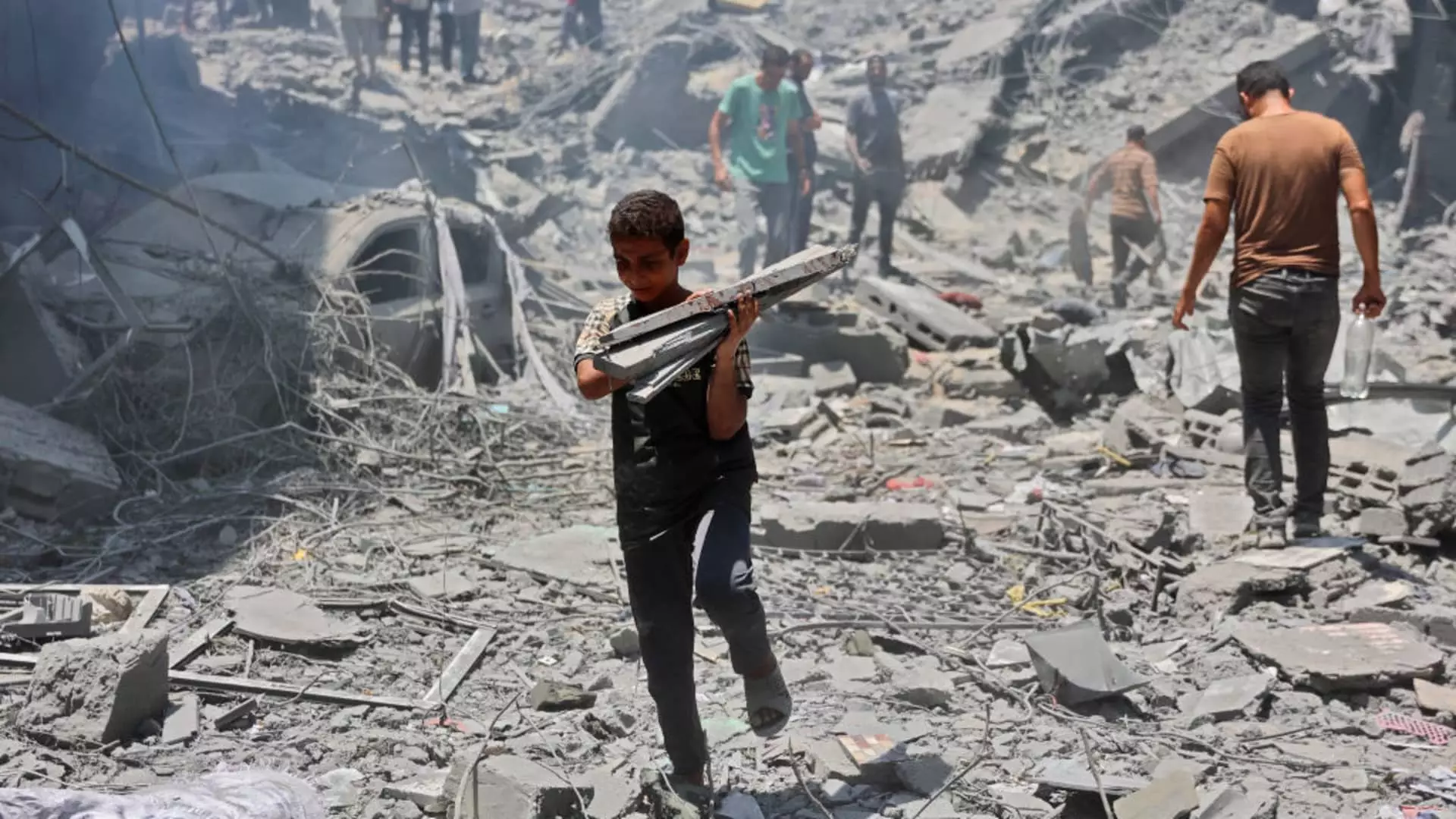Israeli Prime Minister Benjamin Netanyahu recently gave a rare live interview where he discussed the current situation in the war-torn Gaza enclosure. He mentioned that the “intense” phase of fighting is nearing its end, hinting at a possible shift of troops to the northern border with Lebanon to counter hostilities against Hezbollah.
The ongoing conflict has led to the displacement of thousands of Israeli and Lebanese civilians from their border-facing settlements. This displacement has been ongoing since the start of the Jewish state’s war campaign against Hamas in the Gaza Strip. The escalation of the situation has caused turmoil for both sides, with no immediate resolution in sight.
Despite the optimistic outlook given by Netanyahu regarding the fighting against Hamas, he emphasized the need to eliminate Hamas capabilities before considering any resolution in the Gaza enclave. He also hinted at the establishment of a government in the strip under the management of moderate countries in the region, effectively barring the creation of an independent Palestinian state or a transfer of regional governance to the Palestinian Authority.
The involvement of the United States in the conflict cannot be overlooked. U.S. special envoy Amos Hochstein traveled to the region to speak with Israeli and Lebanese leadership in an attempt to ease tensions. Meanwhile, German Foreign Minister Annalena Baerbock announced plans to visit Lebanon to address the escalating border situation. The international community recognizes the severity of the situation and is taking steps to prevent further escalation.
Despite Netanyahu’s assurance of a possible shift to a lower-intensity campaign, the underlying challenges remain. The rhetoric between the Israeli and Lebanese sides has intensified in recent days, with warnings of all-out war and threats of conflict with no rules or red lines. The situation is complex, and the potential for further escalation cannot be ignored.
The strained relationship between the United States and Israel has also come to light during the conflict. Netanyahu has raised concerns about a drop in weapons shipments from the U.S., indicating a growing divide between the two allies. The lack of mutual endorsement for a peace framework further underscores the challenges faced in resolving the conflict.
The ongoing war in Gaza has far-reaching implications for the region. Netanyahu’s statements highlight the complexities of the situation and the challenges involved in finding a resolution. The involvement of the international community, particularly the United States, will play a crucial role in addressing the escalating tensions and preventing further conflict. The path to peace remains uncertain, but efforts must be made to prioritize the well-being of the civilians caught in the crossfire.


Leave a Reply